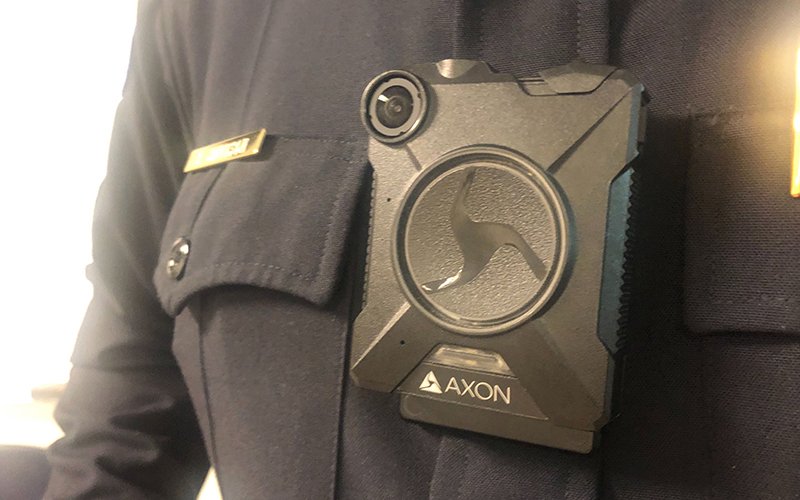body cameras
New Law Sparks ‘Pretty Steep’ Costs for Police Body Camera Footage

Advocates for public records are raising alarms about an Arizona law allowing police departments to charge hefty fees for reviewing body-worn camera footage before its release. Critics argue this practice imposes financial burdens on the public and could lead to potentially unlawful fees.
Republican state Sen. John Kavanagh, the law’s primary supporter, contends the fees serve their intended purpose: to discourage frivolous requests for footage. He asserts that the law, enacted in June 2023, was designed to balance the need for transparency with the costs incurred by law enforcement agencies.
The recent legislative amendment permits cities, counties, and other local governmental entities in Arizona to impose a one-time charge of $46 per hour of reviewed video for public records requests related to law enforcement body cameras. Kavanagh, a former police officer, argues this fee is necessary to help offset the costs associated with editing and redacting records.
The implementation of these fees has varied across the state. Research by the Arizona Mirror revealed disparities, with some agencies potentially exploiting the law by charging excessive fees. Legal experts, including Jared Keenan from the ACLU of Arizona, warned that these practices could lead to charges summing into the thousands, depending on the number of videos requested.
Kavanagh defended the law by asserting that taxpayers should not subsidize individuals who request footage for personal purposes. He believes that only those who seek extensive records should bear the associated costs, effectively socializing the expenses among other taxpayers.
The legislative intent, according to Kavanagh, was to set “reasonable fees” and prevent the misuse of public records. However, Keenan and other advocates fear that the high costs are creating barriers to transparency. They point out that families affected by police violence may struggle to pay for access to footage that is crucial for understanding incidents involving law enforcement.
Among the police departments surveyed, the fees ranged significantly, with many charging the maximum of $46 per hour. Some agencies also impose additional fees, such as $30 for digital storage or non-refundable deposits, raising concerns about transparency and accessibility.
Cities like Flagstaff and Gilbert have implemented additional costs, leading Kavanagh to express concern that these charges could violate public records law. He noted that excessive fees could deter public oversight and accountability.
While no legal challenges to this law have emerged yet, observers anticipate that introducing amendments may be an uphill battle in the current legislature, dominated by Republican lawmakers. Some, like Senator Anna Hernandez, are advocating for more transparency and accountability to be incorporated into the legislative process.
Both Kavanagh and Hernandez express willingness to revisit the law to address potential overcharging; however, the political realities could make significant changes difficult. Hernandez emphasized the need for accessible footage, especially for families seeking clarity following police encounters.
Keenan reiterated that the initial rationale for body-worn cameras was to bolster public trust through transparency. The current financial barriers imposed by fees challenge this core objective, raising deeper questions about accountability in law enforcement practices.


















